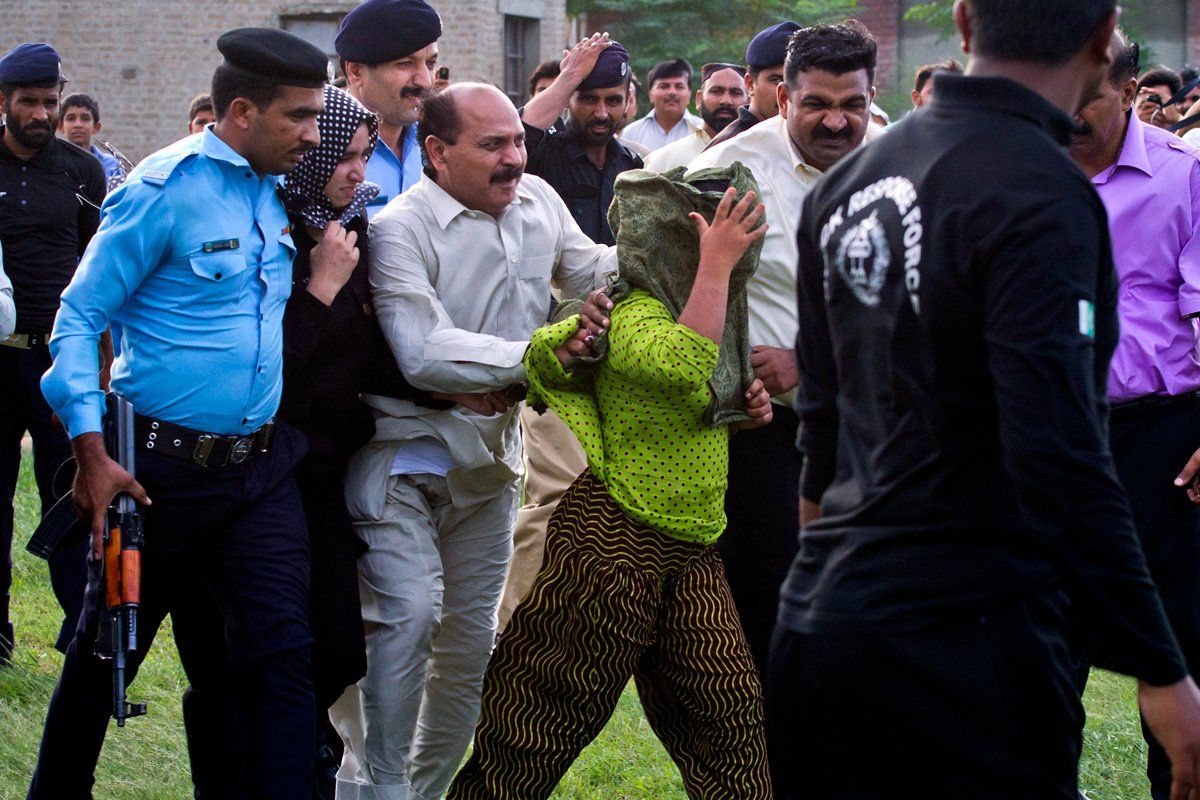
The very memory still makes Iqbal Bibi furious. Late in the afternoon of Aug. 16, two days before the end of Ramadan, the 60-year-old Pakistani woman was out walking near her home on Islamabad's ragged southern outskirts when she found three local men deep in discussion. One of them, a shopkeeper named Malik Ammad, showed her something he said he had just taken from a Christian girl in the neighborhood: charred fragments of Islamic texts. "After seeing the burnt pages, I told them to pour gasoline over the girl and light her on fire, as our religion commands," the old woman tells Newsweek Pakistan. "People have made sacrifices for Islam—and these people are desecrating our holy books!"
Word spread, and a mob soon gathered, taking up the cry: "Burn the girl alive!" But before anyone could act on the threat, the police arrived and hauled her away. Rimsha Masih was booked under Section 295-B of Pakistan's blasphemy law: "Whoever wilfully defiles, damages or desecrates a copy of the Holy Quran or of an extract therefrom or uses it in any derogatory manner or for any unlawful purpose shall be punishable with imprisonment for life." Speaking ill of Islam or the Prophet Muhammad is punishable by death. Sometimes the accused are killed by members of the public even after they are tried and found innocent.
Prominent Pakistani Christians say the girl's arrest may have prevented a bloodbath. No one has forgotten the 2009 Gojra riots, in which at least seven Christians were killed and scores of homes were destroyed after rumors circulated that Quranic verses had been desecrated at a wedding. But now Masih has become one more among the estimated 1,800 defendants who have been prosecuted under Pakistan's blasphemy law in the past 25 years.
Ammad was relaxing outside his home that afternoon when Masih walked by with a bag of ashes and half-burned printed matter, the shopkeeper tells Newsweek Pakistan. Looking closer, he was startled to see the remains of the Islamic introductory readers known as Namaz and Noorani Qaida. He kept the damaged booklets and let the girl go on with the ashes, which she dumped in a nearby vacant lot. After telling neighbors about the incident, Ammad took the evidence home and left it in a bag, which the police retrieved that evening. "But when the bag was opened in the police station, there were also two pages of the Holy Quran," says Ammad. "I told the police there were no pages of the Quran when I saw it."
To their credit the police followed up on the question. Amid the evening's uproar, someone had apparently taken the damaged tracts to show the imam at the local mosque. At least three witnesses were there: the mosque's longtime muezzin and two local men who were keeping a Ramadan vigil. According to a police charge sheet since filed against Imam Khalid Jadoon, the prayer leader allegedly tore two pages out of a Quran and added them to the material in the bag. Police investigators quoted the three men as saying that when they told the imam not to do it, he called them children and said they didn't know how to handle such a situation.
The imam has denied any wrongdoing, saying he's being framed. Police say they have no evidence against Masih, and her case has been moved to juvenile court. Meanwhile she is free on roughly $10,000 bail and being sheltered at an undisclosed location with her family. No one has publicly explained how she came to be in possession of the papers Ammad saw her carrying. She may not have known what they were: by most accounts the girl is illiterate, like much of Pakistan's impoverished Christian minority. A court-ordered mental and physical assessment by seven doctors says she's about 14 chronologically and seems less than that mentally. (She's 11, according to her family and her church, while the prosecutor has claimed she's 21.) One thing seems clear: she can't go home. "Rimsha has lost her life," says her lawyer, Tahir Naveed Chaudhry. "She can't be a part of normal society, even if she gets acquitted. She will have to hide and take shelter somewhere else. She can't survive with this name and identity."
Uncommon Knowledge
Newsweek is committed to challenging conventional wisdom and finding connections in the search for common ground.
Newsweek is committed to challenging conventional wisdom and finding connections in the search for common ground.
About the writer
To read how Newsweek uses AI as a newsroom tool, Click here.








